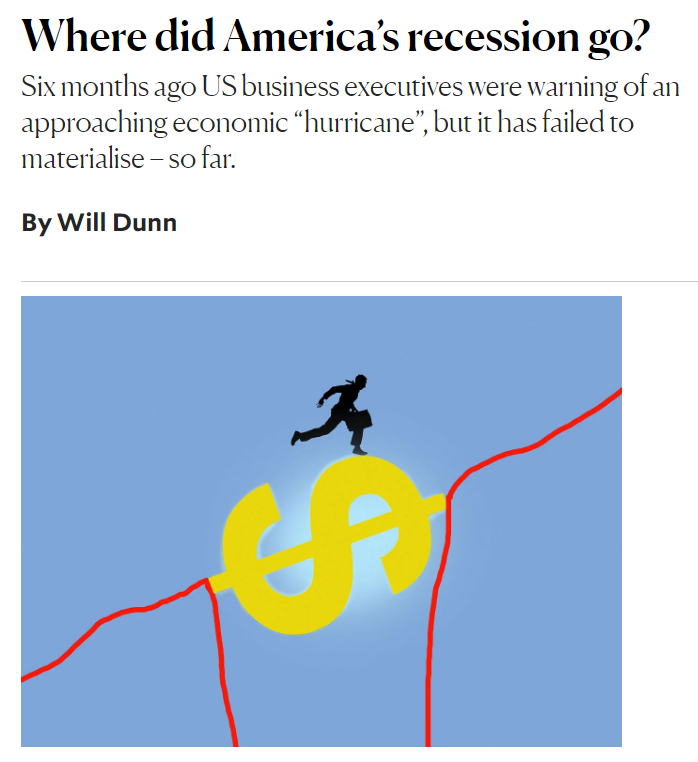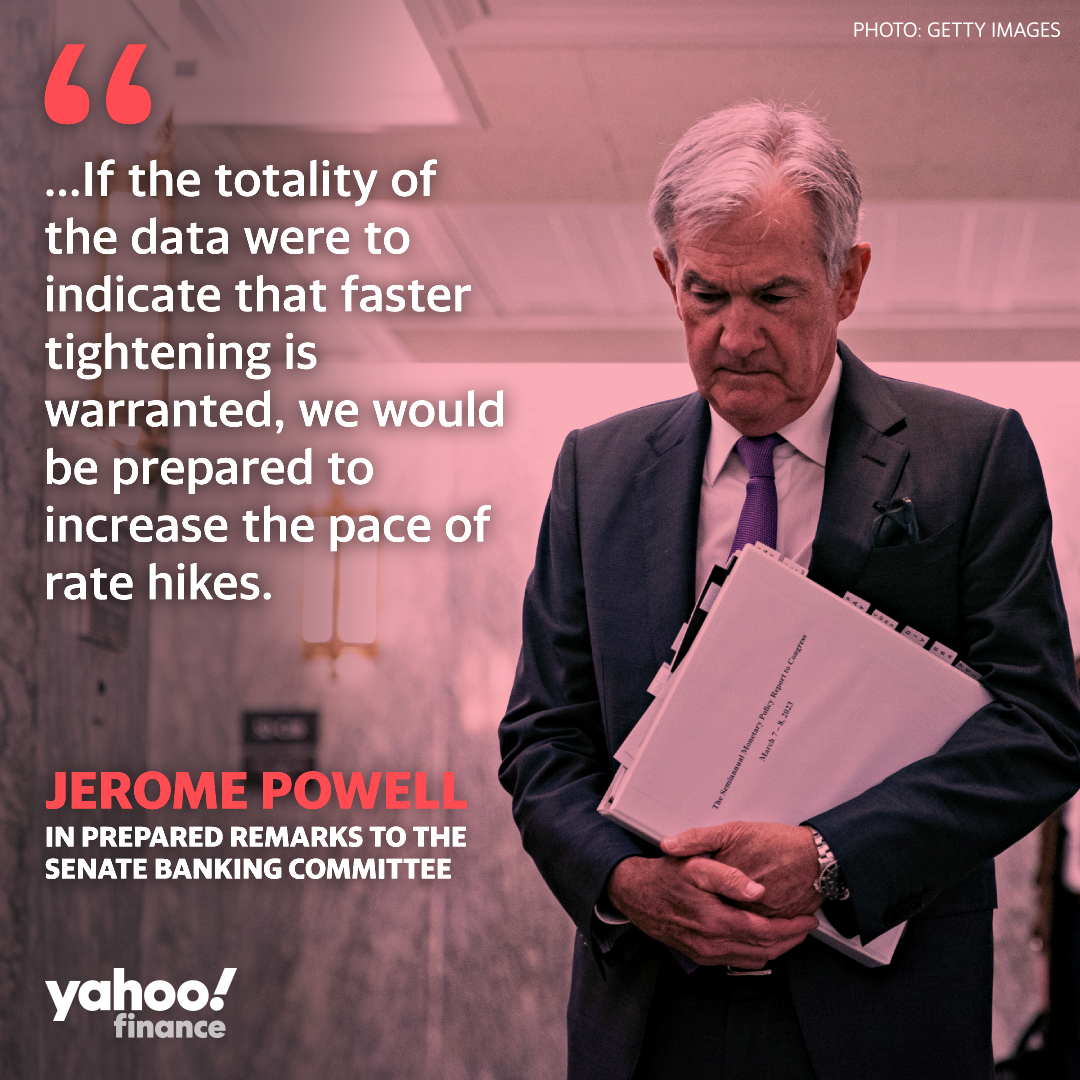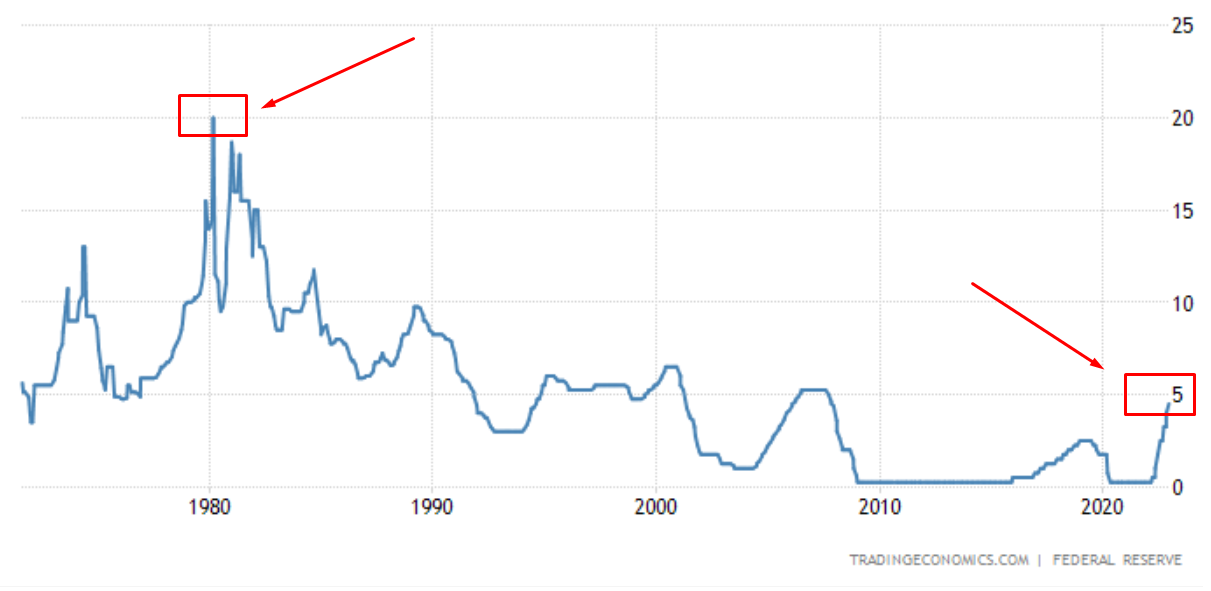What on earth is going on with the market?
Why is it waffling and wavering?
Well, allow me to explain why. In plain English.
Throughout 2022, the stock market was already pricing in the possibility of an economic recession:
- You have to remember that the market is remarkably forward-looking. It can price in the possibilities six months ahead; 12 months ahead; even 18 months ahead.
- This is in line with the efficient market hypothesis — where all available information about the future is digested and reflected in existing prices.
- This is why stocks experienced a heavy sell-off throughout 2022. Investors were terrified that rising interest rates would have a negative impact on the global economy. So they were feverishly pricing that in.
- But, in retrospect, is the efficient market hypothesis always correct? What if the market is occasionally inefficient? Does this provide value for the savvy?
Well, we certainly got a sense of this when January 2023 rolled around:
- Investors decided that they had their fill of worry. Enough was enough. The fear was oversold. So they promptly switched over to greed instead. Bullishness took over.
- The market boomed. Our Eligible and Wholesale Clients who signed up to our Vistafolio Managed Account Service were perfectly positioned to enjoy their best January result ever.
- Why did this happen? Well, because all the fears of an economic recession had already been priced in. The market was now looking forward to inflation peaking, which meant that interest rates could also peak shortly. Optimism was renewed.
But…here comes the wild twist. There was something the market had not priced in. Something it had not anticipated: economic expansion. The January 2023 jobs report for America shows us why:
- At the time, most economists were predicting that 187,000 jobs would be added that month. This would indicate a weakening of the economy.
- However — drum roll, please — the final number turned out to be 517,000.
- Unemployment had fallen to 3.4% — a record 53-year low.
- This explosive result stunned everyone — and it rocked the market.
- It shows that the American economy is still strong. It’s still expanding.
Will Dunn from The New Statesman has a killer headline here:

Source: The New Statesman
Mind you, this is not an American phenomenon either. Here’s what Liam Dann from The New Zealand Herald has to say:
Higher interest rates don’t appear to have deterred Kiwis from getting their cards out and shopping in February.
Retail card spending remained steady at $6.6 billion in February 2023 compared with January 2023, when adjusted for seasonal effects, according to data released by Stats NZ today.
The Reserve Bank is looking for signs that demand is easing in the economy as it assesses how high rates will need to go to get inflation under control.
Today’s data won’t offer much to reassure them that demand is slowing.
Now, when everyone is expecting an economic recession, can an economic expansion be perceived as a bad thing? Well, yes. Here’s why:
- If the central bankers of the world don’t see evidence of slowed spending and widespread unemployment, they may have to push interest rates up higher for longer.
- Jerome Powell, the chairman of the most powerful central bank in the world — the US Federal Reserve — warns that he is seriously entertaining this possibility.
- So…the market now has to hit reset. Digest this new piece of information. Re-evaluate the future.
- Ironically, signs of an economic recession would be good for the market. Many investors are actually craving one — because it would mean that interest rates would have to peak, then go down.
- But an economic expansion means that burning desire will have to be delayed. At least for now.

Source: Yahoo Finance
So, for investors who have been hesitating about entering the market, is this situation creating a second chance for them to buy in? To capture value? Well, on Friday, the February 2023 jobs report for America was released. Here’s what it shows:
- Economists were predicting that 225,000 jobs would be added that month.
- But — yep, you guessed it — once again, the American economy has defied expectations. The actual number turned out to be 311,000.
- Unemployment rose only slightly from 3.4% to 3.6%.
- This suggests that the economy is still being driven by post-pandemic, pent-up demand. It’s running hotter than predicted. People are still spending. People are still hiring.
- Given this situation, Jerome Powell may or may not push for a 50 basis-point hike. This will happen during the next Federal Open Market Committee meeting on March 22.
So, what does this mean for the market? Well, here’s the big picture:
- There will be casualties along the way. Over the past few days, we’ve already seen how two smaller banks have gotten into trouble — Silvergate Bank (with cryptocurrency exposure) and Silicon Valley Bank (with speculative tech exposure).
- People with debt are now feeling distressed over the possibility that the federal funds rate will reach an upper limit of 5.5%. But are they being too emotional? Is their thinking too narrow?
- Well, they are clearly missing the long-term view. Just look back further in time. You will come across this interesting fact — in 1980, the fed funds rate actually soared as high as 20%!
- By comparison, what we’re seeing now in 2023 with 5.5% is chicken feed. History tells us that this isn’t a big deal. It really isn’t.

Source: Trading Economics
- Plus, don’t forget the good news that the mainstream media is ignoring. Year-on-year inflation in America has cooled dramatically. In June 2022, it peaked at 9.06%. And by January 2023, it had fallen to 6.4%. Just compare this with the situation in 1980, where inflation was running at almost 14.5%!
- Therefore, Jerome Powell and the Federal Reserve are doing the right thing by tightening up monetary policy. They are encouraging people to be more resilient. More thoughtful. And for investors with courage and stamina, this could actually be a gift. This could be the ideal window to take advantage of.
The opportunity on the table
So, right now, here’s what you need to think about:
- Is the fear overdone?
- Is it actually creating pockets of value in the market?
- Are there quality assets that are now available at discounted prices?
- Are you contrarian enough to consider your next move?
- Are you courageous enough to make a decision?
These are big questions. Critical questions. And if they are important to you, you need to act now. Please accept my exclusive invitation. Come join our Quantum Wealth Report.
To date, we have investigated and exposed over 90 hidden ideas. From property to healthcare; from artificial intelligence to cryptocurrency; we are doing a deep dive into the latest quantum trends.
These are cutting-edge insights that could change your destiny — if you have the courage and conviction to follow through.
Ask yourself: are you concerned about your family’s well-being and happiness?
Well, if you are, this is the best time to act. And this is the best place to start…
💡 [LIMITED TIME OFFER] Get your first 4 weeks for only US$1 / NZ$1.50
Regards,
John Ling
Analyst, Wealth Morning
(This article is general in nature and should not be construed as any financial or investment advice. Vistafolio services are for Wholesale or Eligible investors as defined in the Financial Markets Conduct Act 2013. Please request a free consultation if you would like to discuss your eligibility.)





John is the Chief Investment Officer at Wealth Morning. His responsibilities include trading, client service, and compliance. He is an experienced investor and portfolio manager, trading both on his own account and assisting with high net-worth clients. In addition to contributing financial and geopolitical articles to this site, John is a bestselling author in his own right. His international thrillers have appeared on the USA Today and Amazon bestseller lists.